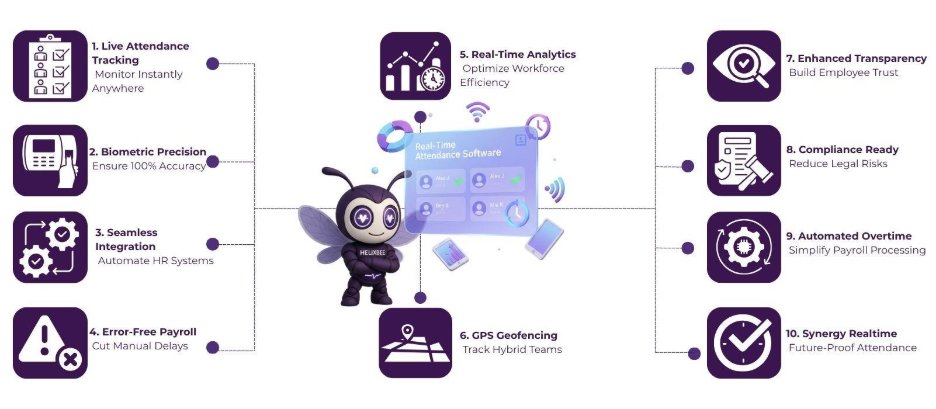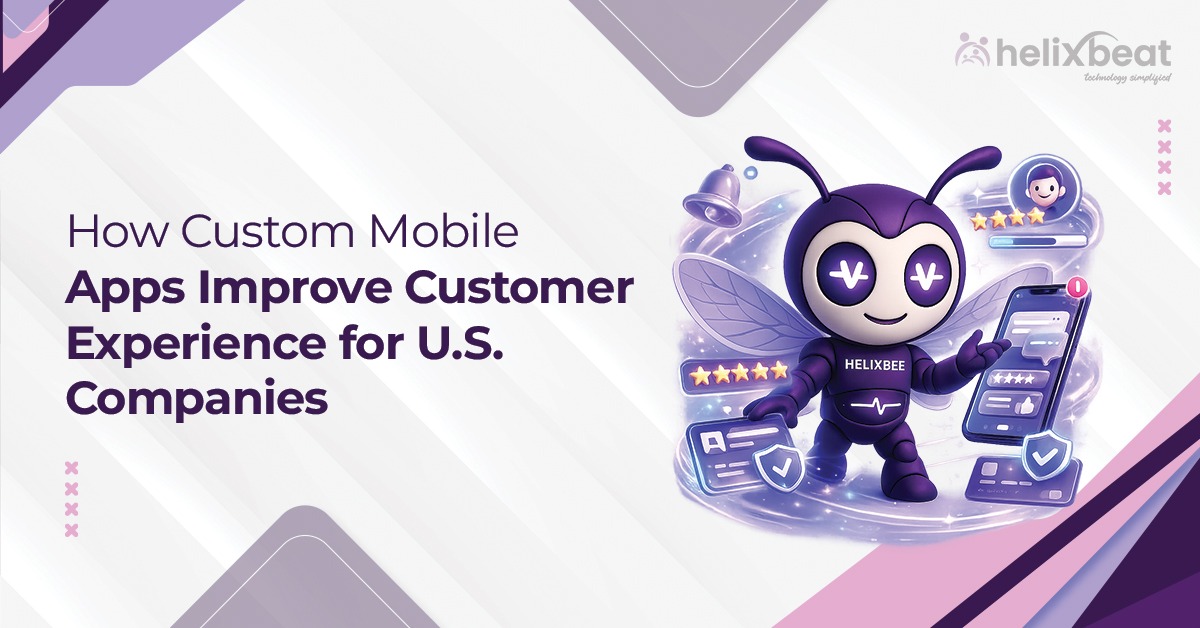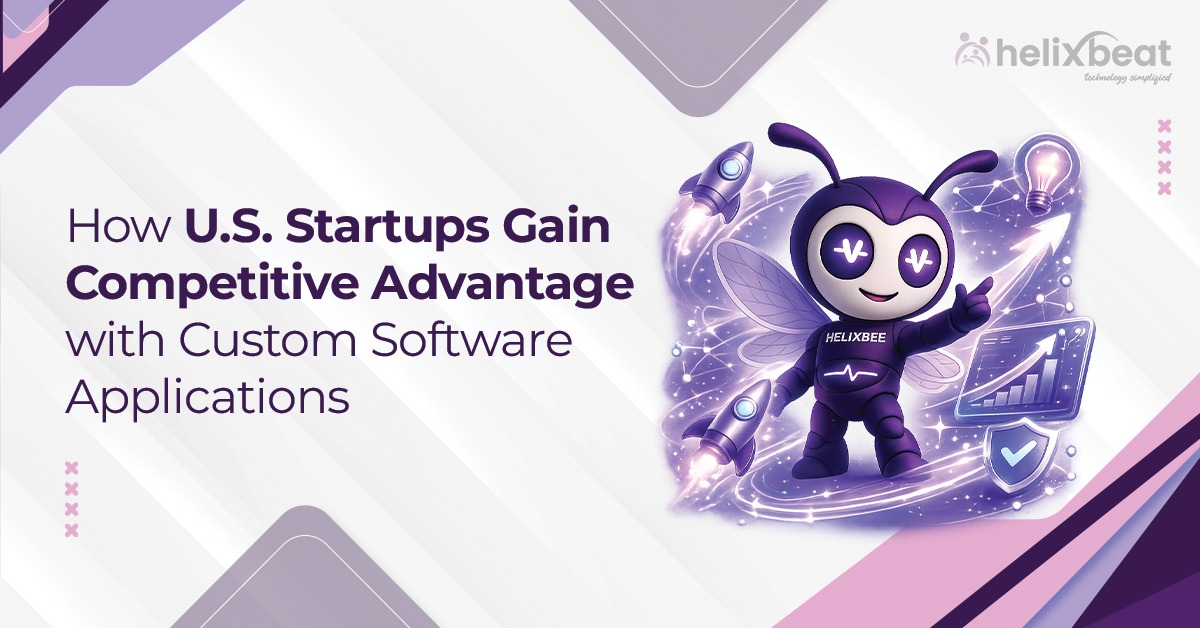Trying to get more traffic but are torn between SEO vs PPC? You’re not alone! Both are powerful digital marketing strategies, but they work in very different ways.
SEO (Search Engine Optimization) focuses on ranking your website organically by optimizing content, keywords, and backlinks. It’s a long-term strategy that builds credibility and brings in 53% of all web traffic. However, it takes time—usually months—to see significant results.
On the other hand, PPC (Pay-Per-Click) offers instant visibility by placing your ads at the top of search results. It’s great for fast results but can be expensive, especially for competitive keywords. Plus, the moment you stop paying, the traffic stops too.
So, which one should you choose? It depends on your goals, budget, and timeline. At HelixBeat, we help businesses craft the perfect SEO vs PPC strategy for sustainable growth. Let’s learn deeper
Table of Contents
The Basics: SEO vs PPC
What is SEO?
SEO is all about optimizing your website so it naturally appears in Google’s search results. You’re not paying Google directly for these rankings. Instead, you’re playing the long game—tweaking your website’s content, improving site speed, building backlinks, and making sure Google sees your website as valuable and relevant to users.
It’s like planting a tree. You water it, give it sunlight, and over time, it grows into a strong, towering giant that people notice.
What is PPC?
PPC is the shortcut. Instead of waiting for Google to rank your site organically, you pay to appear at the top of search results. Ever noticed those “Sponsored” ads at the top when you search for something? That’s PPC in action.
Think of it like renting a billboard on a busy highway. As long as you keep paying, your brand stays visible. But once you stop? Poof! It’s gone.
SEO Rankings: A Long-Term Strategy
SEO rankings are achieved through a combination of strategic content creation, technical enhancements, and link-building efforts. Let’s examine the critical factors that influence SEO rankings.
1. Keywords and Content Optimization
Search engines analyze the relevance of a webpage based on its content and keyword usage. Websites must strategically integrate high-ranking keywords into:
- Titles and meta descriptions
- Header tags (H1, H2, H3, etc.)
- Image alt text
- URLs and internal links
- Body content with natural keyword placement
Google’s algorithm prioritizes content that effectively answers user queries, emphasizing search intent over mere keyword stuffing.
2. Backlink Authority and Link Building
A website’s authority is significantly influenced by the number and quality of backlinks pointing to it. High-authority backlinks act as endorsements, signaling to search engines that the content is valuable and trustworthy. Effective link-building strategies include:
- Guest blogging on reputable sites
- Earning links through high-quality content
- Leveraging digital PR and partnerships
- Fixing broken links and reclaiming lost backlinks
3. Technical SEO Enhancements
Technical SEO plays a crucial role in improving a website’s crawlability and indexing by search engines. Key factors include:
- Website Speed: Faster loading times contribute to better user experience and higher rankings.
- Mobile Optimization: Mobile-friendly websites receive priority in Google’s mobile-first indexing.
- Secure HTTPS Protocol: Security is a ranking factor, making SSL certificates essential.
- Structured Data Markup: Helps search engines understand content context and enhances search visibility through rich snippets.
4. User Experience (UX) and Engagement Metrics
Google measures user engagement through metrics such as bounce rate, dwell time, and click-through rate (CTR). A well-optimized website with intuitive navigation, engaging content, and interactive elements can positively impact rankings.
5. Algorithm Updates and SEO Adaptation
SEO is dynamic, and search engine algorithms frequently evolve. Websites must stay updated with Google’s core updates and adapt strategies accordingly. Regular audits and continuous optimization ensure sustained rankings and traffic growth.

PPC Rankings: Immediate Results but Paid Visibility
Unlike SEO, PPC rankings are determined through an auction-based system where advertisers bid for keyword placement. Google evaluates ads based on the following factors:
1. Keyword Bidding Strategy
PPC campaigns involve setting a maximum bid amount for specific keywords. The bidding system operates in real-time, and businesses compete for top placements based on bid value and ad relevance.
2. Quality Score and Ad Relevance
Google assigns a Quality Score to ads based on:
- CTR Predictions: The likelihood of users clicking the ad.
- Ad Copy Relevance: Alignment between ad text and user search intent.
- Landing Page Experience: The quality and relevance of the page users land on after clicking the ad.
A higher Quality Score lowers cost-per-click (CPC) and improves ad placement.
3. Ad Targeting Precision
PPC allows advanced targeting capabilities, including:
- Demographics: Age, gender, income level, etc.
- Location: Targeting users by country, city, or radius.
- Device: Optimizing ads for mobile, desktop, or tablet users.
- Behavioral Targeting: Retargeting users who previously visited the website.
4. Budget Control and Ad Spend Efficiency
PPC campaigns offer complete control over advertising budgets. Businesses can allocate funds based on campaign performance and adjust bids to maximize ROI.
5. Ad Extensions and Visibility Enhancements
Google Ads provides various extensions to improve visibility and CTR, including:
- Sitelink Extensions: Additional links to relevant pages.
- Call Extensions: Click-to-call functionality.
- Location Extensions: Displays business location and directions.

SEO vs PPC: A Detailed Comparison
Search Engine Optimization (SEO) and Pay-Per-Click (PPC) advertising are two of the most effective digital marketing strategies for driving traffic and increasing visibility. However, they work differently and come with their own advantages and challenges. Let’s explore both in detail.
SEO (Search Engine Optimization)
SEO is the process of optimizing a website to rank higher on search engine results pages (SERPs) organically. It involves improving content, enhancing technical aspects, and earning backlinks to boost credibility.
Pros of SEO
- Cost-Effective in the Long Run: SEO requires an initial investment in content creation, optimization, and website improvements. However, once a website gains organic traffic, it continues to receive visitors without additional costs per click. This makes SEO more sustainable compared to PPC, where you must pay for each visitor.
- Builds Long-Term Authority & Credibility: Websites that rank high organically are often seen as more trustworthy. Users generally perceive top-ranking pages as more relevant and credible than paid advertisements. Google also prioritizes authoritative sites, so businesses that invest in SEO build lasting reputations.
- Higher Click-Through Rate (CTR) Compared to PPC: Studies have shown that organic results receive more clicks than paid ads. Many users prefer clicking on organic search results over sponsored ones, as they believe organic listings provide more value.
- Sustainable & Evergreen: Unlike PPC, which stops delivering traffic once the budget runs out, SEO continues working even if efforts slow down. Well-optimized content, such as blog posts and landing pages, can bring traffic for months or even years.
- Better User Experience: SEO isn’t just about keywords; it also focuses on improving the website’s user experience. This includes optimizing page speed, mobile responsiveness, and navigation, ensuring a smoother and more enjoyable experience for visitors. A well-optimized website tends to convert more visitors into customers.

Cons of SEO
- Takes Time to See Results: SEO is a long-term investment. It may take several months (sometimes even a year) to rank high on search engines, especially for competitive keywords. Businesses that need quick results may find SEO frustrating in the beginning.
- Requires Constant Updates & Optimization: Search engine algorithms are frequently updated. What works today might not work tomorrow. Websites need ongoing content updates, link-building efforts, and technical improvements to maintain their rankings.
- Highly Competitive: Popular keywords in competitive industries are challenging to rank for. Larger businesses with strong SEO strategies dominate the top positions, making it difficult for newer or smaller businesses to compete.
- No Guaranteed Rankings: Unlike PPC, where you can pay to appear at the top of search results, SEO doesn’t guarantee success. Even with the best efforts, rankings depend on search engine algorithms, competition, and external factors like user behavior.

PPC (Pay-Per-Click Advertising)
PPC advertising allows businesses to place ads on search engines, social media, and other platforms. Advertisers pay for each click on their ad, ensuring instant visibility and targeted traffic.
Pros of PPC
- Instant Visibility & Traffic: One of the biggest advantages of PPC is speed. Unlike SEO, which takes months to show results, PPC ads can appear at the top of search results almost immediately after a campaign is launched. This makes PPC ideal for businesses that need quick traffic.
- Highly Targeted Advertising: PPC allows businesses to target specific audiences based on factors such as location, demographics, search intent, and online behavior. This precision ensures that ads reach the most relevant audience, increasing the chances of conversion.
- Measurable & Scalable: PPC provides detailed analytics, including impressions, clicks, conversions, and ROI. Businesses can track their campaign performance in real-time and make data-driven adjustments. Unlike SEO, where changes take time to reflect, PPC campaigns can be modified instantly to improve results.
- Flexibility & Control: PPC campaigns offer complete control over budgets, keywords, and ad placements. Advertisers can increase or decrease their spending as needed, pause campaigns, or experiment with different ad copies and strategies without long-term commitments.
- Great for Seasonal Campaigns & Promotions: PPC is an excellent choice for time-sensitive campaigns, such as holiday sales, product launches, or event promotions. Businesses can run ads for a limited period and gain maximum visibility without relying on slow organic growth.

Cons of PPC
- Expensive & Requires Ongoing Budget: PPC campaigns can become costly, especially in competitive industries where cost-per-click (CPC) is high. Unlike SEO, where traffic continues even after efforts slow down, PPC stops driving traffic the moment the budget is exhausted.
- Lower Trust & Click-Through Rates (CTR) Compared to Organic Results: Many users skip paid ads in favor of organic search results, believing that paid listings are promotional rather than valuable. As a result, PPC ads often have lower CTRs compared to high-ranking organic pages.
- Short-Term Strategy: While PPC provides instant results, it does not contribute to long-term brand authority. The moment a business stops running ads, traffic drops. This makes PPC less sustainable compared to SEO.
- Requires Expertise to Manage Effectively: Running a successful PPC campaign requires a deep understanding of bidding strategies, keyword research, ad copywriting, and analytics. Without proper expertise, businesses may end up overspending on ads without seeing significant results.

SEO vs PPC: Which One Should You Choose?
The best strategy depends on business goals, budget, and timeline:
- SEO is ideal for businesses that want long-term growth, organic credibility, and cost-effective traffic over time. It requires patience but offers sustainable results.
- PPC is perfect for businesses that need immediate visibility, targeted traffic, and quick sales. It delivers fast results but requires continuous investment.
Best Approach: Combine SEO vs PPC
Rather than choosing one over the other, a combination of both strategies often yields the best results. Businesses can use PPC for immediate traffic while working on SEO for long-term success.
For example:
- Use PPC to target competitive keywords while waiting for SEO rankings to improve.
- Optimize landing pages for both SEO vs PPC to maximize conversion rates.
- Retarget PPC visitors with SEO content to nurture leads.
By leveraging both SEO vs PPC, businesses can achieve sustainable growth while maintaining a steady flow of customers.
Final verdict: SEO vs PPC
So, what’s the best choice—SEO vs PPC? Honestly, it depends on what you need. If you’re looking for long-term growth, SEO is the way to go. It takes time, but once your site ranks, you’ll enjoy free traffic without paying for every click. On the flip side, if you want immediate visibility and quick conversions, PPC gets you there fast—just be ready to invest in ad spend.
The real magic happens when you use both together. While SEO builds your brand’s credibility, PPC keeps the leads coming in. Need help figuring out the right strategy for your business? That’s where Helixbeat comes in. Our SEO services help you climb the search rankings organically, while our PPC experts create high-converting ad campaigns to get you results instantly.
Let’s grow your business the smart way—reach out to Helixbeat today and dominate the search results!
FAQs
- What is the main difference between SEO and PPC?
SEO (Search Engine Optimization) focuses on improving organic search rankings, while PPC (Pay-Per-Click) is a paid advertising model where businesses pay for clicks on their ads. HelixBeat provides expert guidance on both to maximize your online visibility.
- Which is better for long-term results: SEO or PPC?
SEO is a long-term strategy that builds sustainable traffic, while PPC delivers immediate results but stops when the budget runs out. HelixBeat helps businesses balance both strategies for the best outcomes.
- How much does SEO cost compared to PPC?
SEO costs vary based on strategy and effort, while PPC requires a set budget for each ad campaign. HelixBeat offers budget-friendly SEO and PPC solutions tailored to your needs.
- How long does it take to see results with SEO and PPC?
SEO can take months to show results, while PPC generates traffic instantly. HelixBeat helps you optimize both for short-term and long-term success.
- Can I use both SEO and PPC together for my business?
Yes! Combining SEO and PPC can increase visibility and lead conversions. HelixBeat provides an integrated marketing strategy to leverage both effectively.
- Which is more effective for lead generation: SEO or PPC?
PPC is great for quick leads, while SEO attracts high-quality, organic leads over time. HelixBeat helps you choose the right mix based on your business goals.
- Does PPC improve my website’s organic ranking?
No, PPC does not directly impact SEO rankings, but it can drive traffic and brand awareness. HelixBeat ensures your SEO and PPC strategies complement each other for maximum impact.
- When should I choose PPC over SEO?
If you need immediate traffic, PPC is the way to go. If you aim for long-term, cost-effective growth, SEO is better. HelixBeat helps you decide based on your specific needs and budget.














